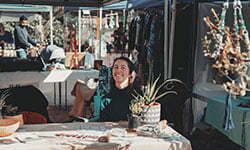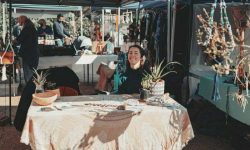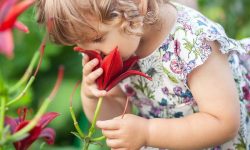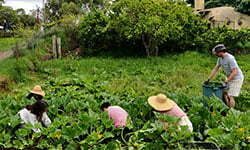Cultivating a sense of community is also extremely important to the nursery in creating a space for everyone to feel inspired and confident in the garden.
“I feel like we belong to the community… We see kids grow up coming into the nursery over the years and families change and grow,” says Laurel. Because the nursery is a part of a not-for-profit organisation, customers have developed a deep sense of trust with the nursery.
“We have this place in the community that is one of mutual respect and mutual trust. People want to support us because we add something special.”
With this sense of closeness and trust, CERES nursery has been able to encourage its customers to grow edible food and learn farming techniques, which are a valuable asset to have in the current volatile climate situation.
As the nursery is located within inner Melbourne, much of the advice to customers revolves around growing food in an urban setting such as small backyards, balconies or community gardens. “We encourage people to look at what you can grow in small spaces. You don’t need half an acre or a farm, you can grow a lot with clever planning and good design,” says Laurel.
“For now, food security is just enjoyable and fun, but I think there will come a time when it’s actually important. There’s a real complacency about it in Australia because food is cheap and there’s so much of it. I think we’re in danger of being too complacent.”
In a time of global uncertainty, CERES Nursery offers the community a place of tranquility, the tools for growing your own food, and warm, friendly smiles.
By Lucy Dowling-Brown, CERES Communications Intern
[1] Miller, Shawn William. “Cuba’s Latest Revolution” In An Environmental History of Latin America. New York: Cambridge University Press, 2007.









